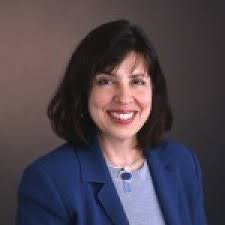 President Sarita Brown said she believes community colleges can play a critical role in assuring Latino students’ academic success.
President Sarita Brown said she believes community colleges can play a critical role in assuring Latino students’ academic success.CHICAGO — Sarita Brown said she believes community colleges can play a critical role in assuring Latino students’ academic success. For one, Latinos are more likely to enroll in a community college than other higher education institution. It’s time, she said, for those institutions to ask what they are doing for Latino students.
The pace needs to pick up.
To illustrate how behind the curve institutions of all types have been, she addressed how media across the country only woke up to the growing Latino population after the release of the 2000 U.S. Census. “This was not a newsflash,” she said, half-jokingly. But for newspapers, it was a “great aha moment.” And that reaction became almost a clarion bell for many such as Brown whose work involves elevating academic achievement opportunities for low-income and minority students.
“If you are comfortable discovering something that is obvious, then you’re likely going to be slow to respond” to covering issues such as the achievement gap, said Brown, president of Excelencia in Education, during a spotlight session at the American Association of Community Colleges (AACC) Convention earlier this week.
“At this point, all we can say is there are a lot of us,” she added, referring to the demographic shift marked by Latino population growth that seemed to catch the U.S. media by surprise, and to this day calls for an ever-greater emphasis on and investment in Latino education.
Brown was at the AACC Convention to introduce Excelencia’s new Ladder of Engagement for Latino Student Success. The Ladder has four rungs (from the bottom to the top): awareness and information seeker, practices, intentional and institutional and public accountability. Brown wants community college leaders to partner with Excelencia and access those rungs.
The top of the ladder is the destination, said Brown, who is president of the Washington, D.C.-based nonprofit that uses evidence-based practices to accelerate Latino student success in higher education. Excelencia’s operating principle, Brown said, is to “use data to inform action.”
Two years ago, Excelencia launched Presidents for Latino Student Success to enlist higher education leaders in helping facilitate degree attainment for Latino students. Dr. William Serrata, president of El Paso Community College in Texas, is one of a growing number of leaders involved in that initiative. His school has received national recognition. Last year El Paso ranked No. 1 in Hispanic Associate Degree Producers among 100 top community colleges. “Mine is an institution where Latino students thrive,” he said.
This was the 96th Annual Convention of the American Association of Community Colleges, which collectively serves more than 12 million students. Over four days starting April 9, more than 2,000 community college presidents, senior administrators and international educators met at the Hyatt Regency Hotel in downtown Chicago for dozens of workshops, spotlight and breakout sessions.
Major speakers included actress America Ferrera of TV’s Ugly Betty and Nick Pinchuk, chairman and chief executive officer of global tool manufacturer Snap-on Incorporated. In his talk during the Hail and Farewell luncheon on Sunday afternoon, Pinchuk emphasized the role community colleges have in “upscaling the American workforce.” He told the college leaders that their institutions need to take stock of the marketplace to fill the skills gap and to “match what you do to what’s needed.”
During the session “Inclusive Directions: The Role of the Chief Diversity Officer in Community College Leadership,” three CDOs offered advice on navigating their particular campus environments.
Sometimes the right question drives what can get done, said Michelé Smith, special assistant to the president for diversity and inclusion and assistant provost at Harper College in Palatine, Illinois. “Ask what’s underrepresented at your campus,” she advised.
In looking at CDOs as compliance officers, Clyde Pickett, special assistant to the president for diversity and inclusion for the Community College of Allegheny County in Pennsylvania, said: “The work of chief diversity officers as change agents must be proactive and not reactive.”


















